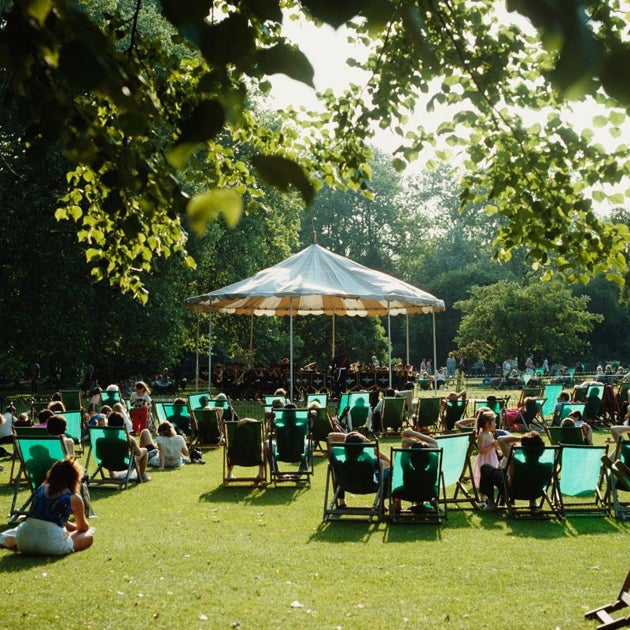The Week in Radio: The charge of the light (music) brigade

It's hard to think of Radio 3 having a sense of mischief, or even a sense of humour, but how else to explain the Light Fantastic season, which coincided with Glastonbury? It's as though someone said the Glastonbury coverage will be absurdly over the top as usual, so let's come up with something more way out, eclectic and frankly against the grain. Something that people would never listen to while eating organic beansprouts in a quagmire. And they managed it. It's certainly hard to think of 100,000 people wallowing in mud and competing for latrines to hear Herb Alpert and the Tijuana Brass.
If you don't know what light music is, think "Barwick Green", "Sailing By" or Desert Island Discs. It's the music of seaside resorts and the test card. From the 1930s to 1950s, the BBC broadcast light music constantly, and in Whatever Happened to British Light Music?, Petroc Trelawny staged a live debate on the not especially pressing question of why it disappeared. According to conductor and enthusiast John Wilson, light music offered "a picture postcard view of English places, an idyllic, illusory view of England". From a time when fields were for cows, not Coldplay. "It was a culture of togetherness, which looked to the authority of the BBC and the military," said another contributor, but was replaced by "a generation that doesn't want to listen to music that makes you feel better, it wants music that makes you feel worse." Actually, a lot of the light music on offer did make me feel worse, in a back-to-the-Fifties, Spam-and-tranquilisers way, but there were plenty of people who loved it. In one of the more enjoyable programmes of the season, Private Passions, Stephen Fry chose Herb Alpert's "A Walk in the Black Forest", a tune of almost hysterical cheerfulness, and listened back to it "howling with laughter". "There's nothing black or foresty about it at all," he pointed out. "It's more like 'A Skip to the Ice Cream Van'."
Nostalgia was again to the fore in Testing Times when John Humphrys returned to Moorland Primary, the Cardiff school he attended "150 years ago", as one child guesstimated. On finding role play, treasure hunts and teachers saying things like, "Peter took it upon himself to go into the writing area", Humphrys made the kind of comments adults do about their schooldays. "Small children didn't bath very often because very few of us had bathrooms in those days," he claimed mistily, and "Mr Brown's cane was always in easy reach."
But this nostalgia fest had a serious point because Wales has recently ditched SATs tests and league tables and the results are pretty shocking. According to a Bristol University study, the decision has prompted a two-grade drop in GCSE compared to equivalent English areas. The bureaucrats prevaricated, yet the evidence Humphrys presented seemed incontrovertible. But something about the proximity of children, or perhaps the return to the valleys, had softened his sinews. His lip lost its curl and he didn't volunteer a personal conclusion. "I suspect the judgements we make are coloured by our old school days," he said diplomatically, but somewhat disappointingly for his Today programme fans.
As author of the legendary Small Is Beautiful, Fritz Schumacher would probably have hated Glasto too. But might he have inspired the Big Society? According to Archive on 4, Schumacher was "a rare prophetic voice, a party pooper of biblical proportions" who foresaw our current economic mess and opposed the hope of infinite growth. Jonathon Porritt's revision of this radical thinker was extremely timely, but much of the discussion seemed abstract and meandering. Which is a shame because Schumacher himself was a prince of the pithy comment. When accused of being a crank he retorted: "What's wrong with a crank? It's a small instrument, very simple and causes revolutions."
Join our commenting forum
Join thought-provoking conversations, follow other Independent readers and see their replies
Comments
Bookmark popover
Removed from bookmarks